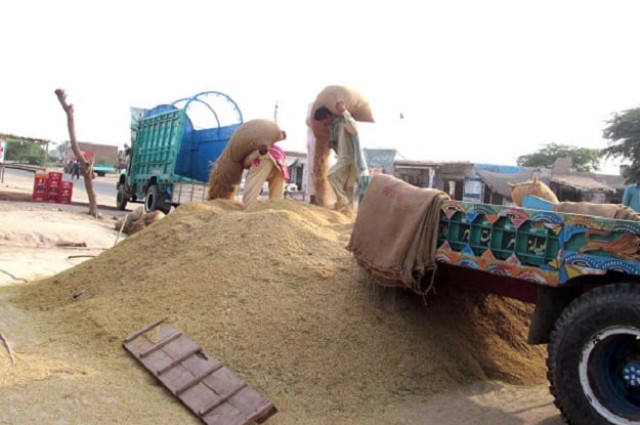Barter rice for energy with Iran
Food security ministry holds discussion, decision to be taken soon

Food security ministry holds discussion, decision to be taken soon. PHOTO: APP
A senior official of REAP, while talking to The Express Tribune, said they had proposed to the government to allow the export of surplus rice to Iran by transferring the amount due against the government to the exporters until a proper currency transfer arrangement and an effective, efficient and reliable formal banking channel were restored.
“Yes, we have requested the authorities to devise a mechanism for rice export to Iran and pay the outstanding bills for Iranian electricity supply to the exporters,” said a REAP representative on condition of anonymity because the proposal was at an early stage.
“If the Pakistan and Iranian governments agree, the exporters will soon export one million tons of basmati rice,” he said. Prior to the economic sanctions imposed on Iran by western countries, Pakistan had been exporting about 700,000 tons of basmati to Iran annually and it was the largest market for Pakistani rice.

At present, Pakistan has four million tons of surplus rice, of which 3.2 million tons are non-basmati and 700,000 tons are basmati. Pakistan owes more than $100 million to Iran for electricity import.
An official of the Ministry of National Food Security and Research confirmed that the proposal had been received. “Our ministry is in discussion at the highest level and a decision will be taken soon,” he said.
Meanwhile, a statement issued by REAP Chairman Rafique Suleman and other members has drawn the government’s attention to the sharp drop in rice exports.
Citing the export figures for July received from statistics section of the Trade Development Authority of Pakistan, Suleman said shipments fell 14% in terms of quantity and 27% in value.
He pointed out that rice exports faced a lot of challenges during the last fiscal year and if corrective measures were not taken by the government, the current year would also be very tough.
The exporters have, however, welcomed the decision of the Iranian government to lift the ban on rice imports from Pakistan in the backdrop of a gradual removal of international sanctions. Rice exports will restart from October this year.
However, Suleman believes that the decision will prove ineffective until a proper currency transfer arrangement and an effective and reliable formal banking channel is put in place.
At present, almost 90% of rice is imported from India even though imports from Pakistan are more economical.
Owing to low demand in the international market, rice prices were declining to a critical level that was inflicting heavy losses.
Published in The Express Tribune, September 8th, 2015.
Like Business on Facebook, follow @TribuneBiz on Twitter to stay informed and join in the conversation.



















COMMENTS
Comments are moderated and generally will be posted if they are on-topic and not abusive.
For more information, please see our Comments FAQ